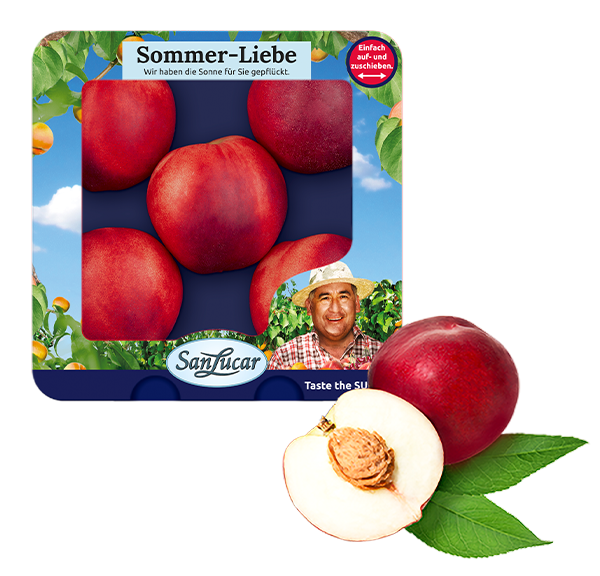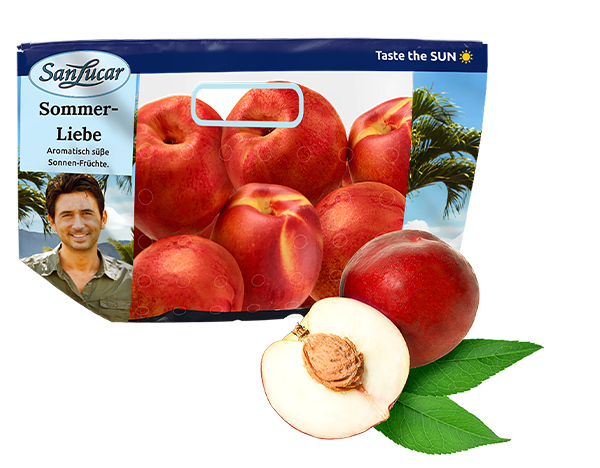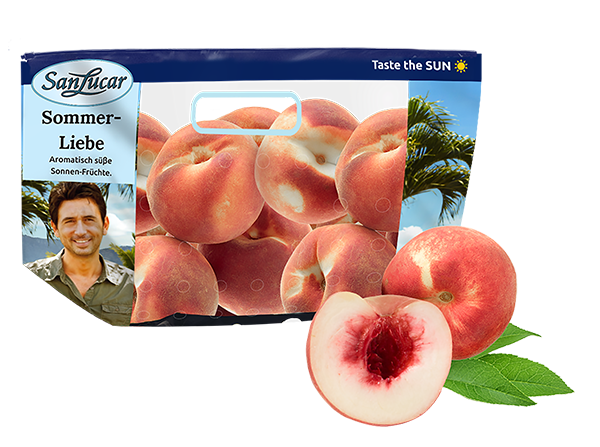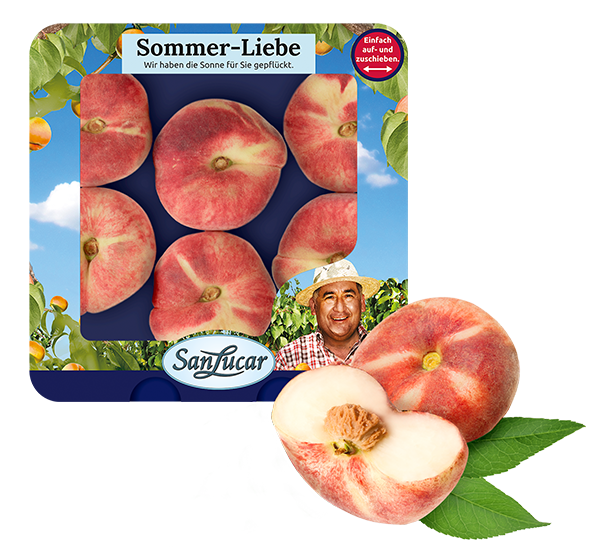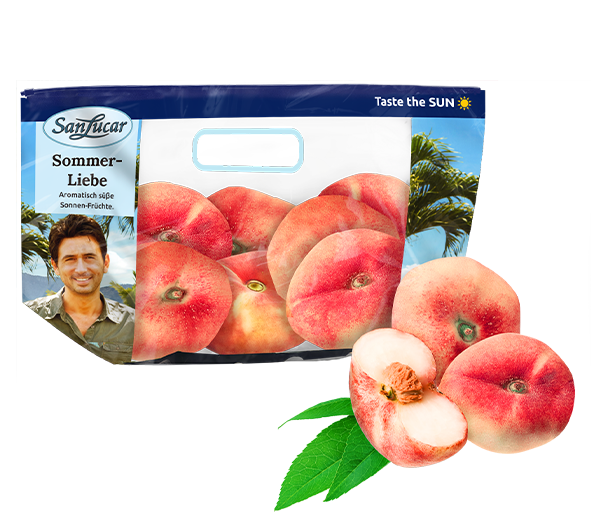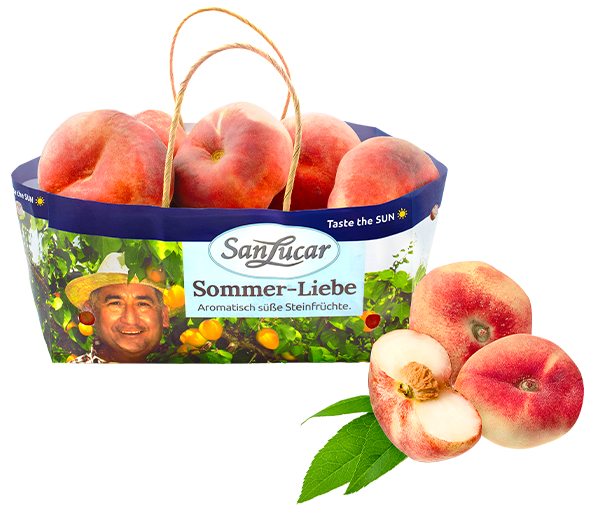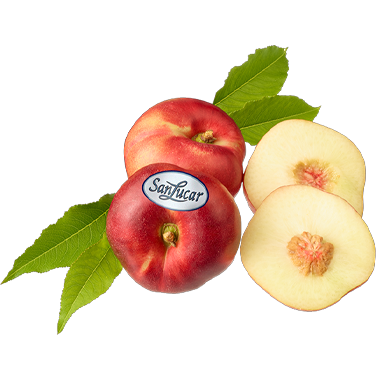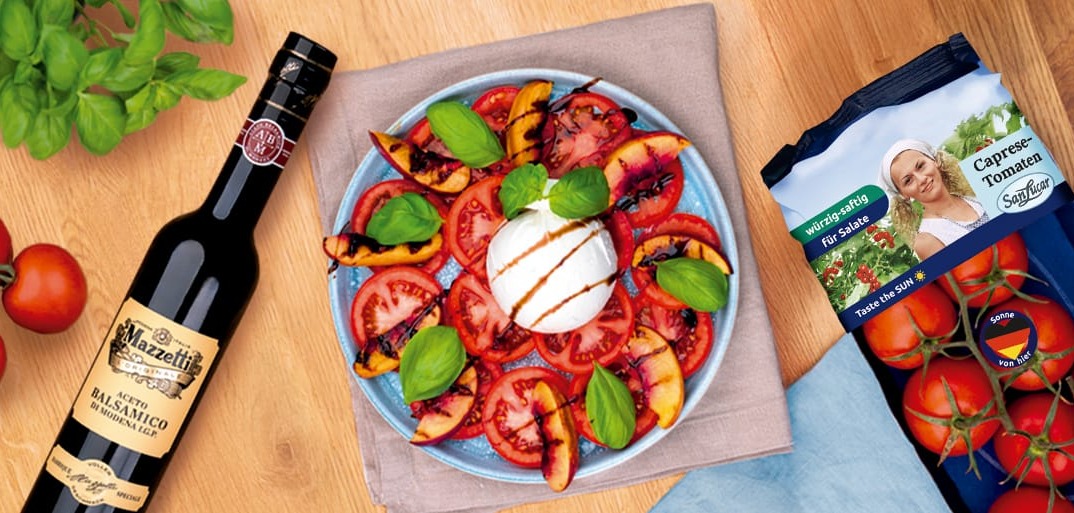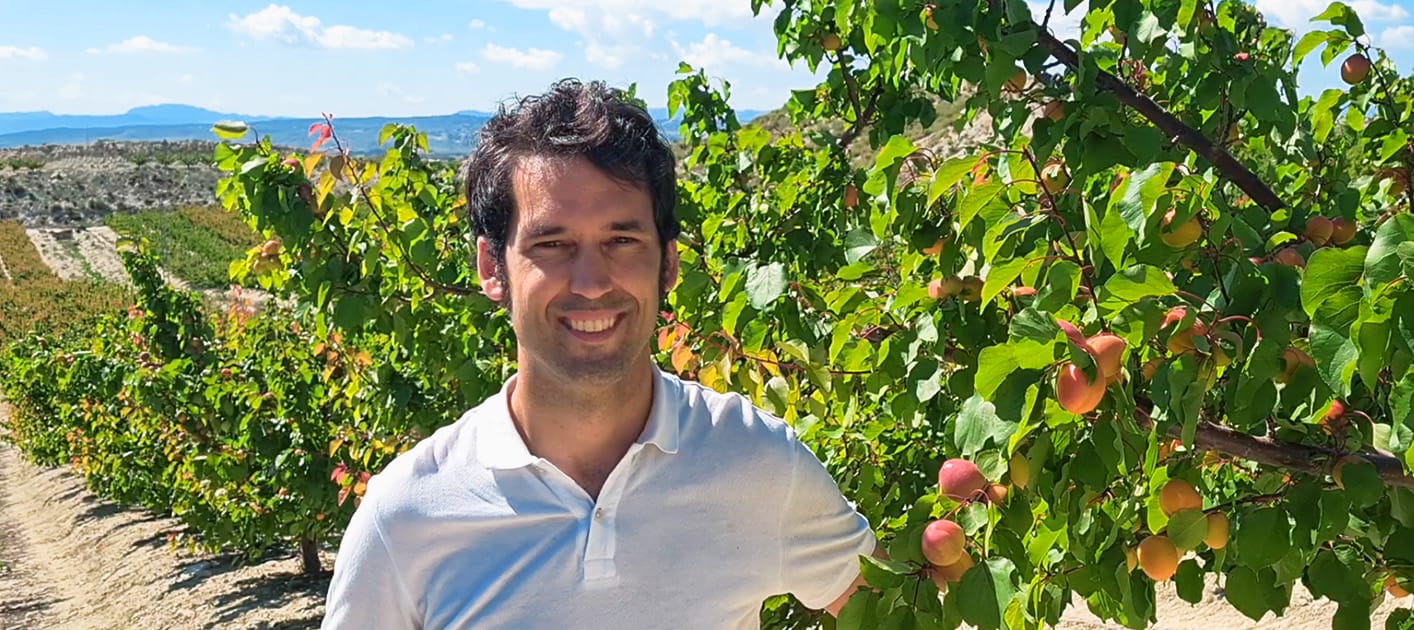
Wir haben die Sonne für euch gepflückt.
Off to a sweet summer retreat.
Peaches and nectarines are a little like us humans – they may come from the same family, but they are still very different. Nevertheless, they have a few things in common, such as thriving in the sunny growing regions of Caspe and Murcia in Spain under the care of our experienced Master Growers, who are passionate about the juicy and sweet stone fruits.
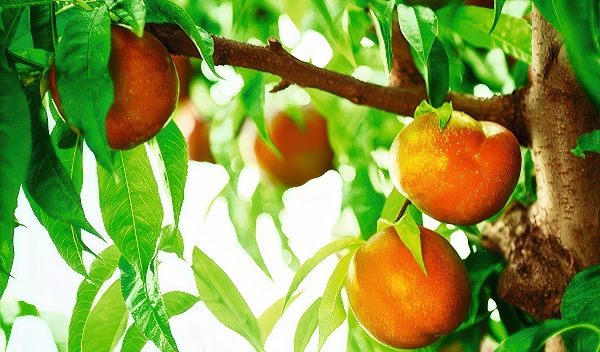
“So that we can pick lots of delicious fruit in summer, we set up beehives in the plantations in spring. Then we let the insects fly diligently from flower to flower – and we are always very happy with their work,” laughs picker Carlos, looking at the tree with the many golden-yellow fruits.
For the peaches and nectarines to have an intense flavour, it is important that they have constant day and night temperatures during the harvest months from May to October. At night, the thermometer should not fall below 14 degrees Celsius.
Peaches and nectarines are post-ripening fruits. We therefore harvest them when they are ripe for picking. They develop their full flavour at home at room temperature. And it is when they yield slightly to a little light pressure and smell heavenly that they are ready to be your sweet summer treat.
By the way, you can snack on our peaches and nectarines all year round. In winter, for example, we pick them in South Africa.
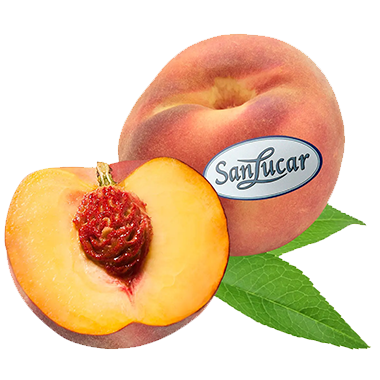
Good to know
Stone fruits are kept from drying out in a food storage container. The fruits ripen quickly at room temperature.
More interesting factsabout peaches, nectarines, paraguayos and platerinas
Country of origin
For SanLucar, the juicy delicacies thrive only in the best growing regions, such as Murcia in southern Spain, among others, where the climate and the light, well-ventilated soils are perfect for growing or for example South Africa and Chile.
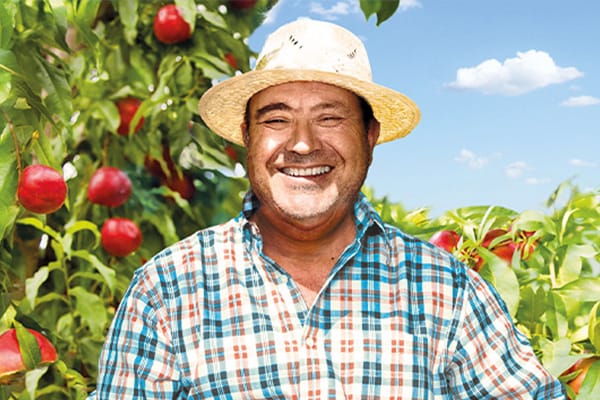
Nutritional information for nectarines
| Vitamin B (mg/100g) | 2.1 mg |
| Vitamin C (mg/100 g) | 9.5 mg |
| Vitamin E (mg/100 g) | 2 mg |
| Potassium (mg/100 g) | 192 mg |
| Magnesium (mg/100g) | 9 mg |
| Calorific values: Energy | 56 kcal |
| Fett thereof |
0.1 g |
| Monounsaturated fatty acids | |
| Polyunsaturated fatty acids | |
| Carbonhydrates | 12.4 g |
| of which sugar | 11.6 g |
| Protein | 0.9 g |
| Salt | 8 g |
| © German Food Code 3.02 |
History
Like many other fruits, peaches originate from the Chinese region. Via Persia and Greece, they reached the Mediterranean region on the ancient trade routes, where they have been planted for about 2000 years.
Nutritional information for platerinas
| Vitamin C (mg/100 g) | 9.5 mg |
| Vitamin E (mg/100 g) | 1.9 mg |
| Potassium (mg/100 g) | 192 mg |
| Phosphor (mg/100 g) | 20 mg |
| Calorific values: Energy | 41 kcal |
| Fett thereof |
0.1 g |
| Monounsaturated fatty acids | |
| Polyunsaturated fatty acids | |
| Carbonhydrates | 8.9 g |
| of which sugar | 8.2 g |
| Protein | 0.8 g |
| Salt | 3 g |
| © German Food Code 3.02 |
Tips and special features
Always transport the fruit as gently as possible. They are very sensitive to pressure due to their high water content. Therefore, it is best to place them on top of your groceries and not to squeeze them on the way. If you want to skin the fruits for cooking or baking, it is best to blanch them. Simply immerse them briefly in boiling water, quench in cold water and the skin is easily removed.
Nutritional information for peaches
| Vitamin B (mg/100g) | 2.1 mg |
| Vitamin C (mg/100 g) | 9.5 mg |
| Vitamin E (mg/100 g) | 2 mg |
| Potassium (mg/100 g) | 192 mg |
| Magnesium (mg/100g) | 9 mg |
| Calorific values: Energy | 41 kcal |
| Fett thereof |
0.1 g |
| Monounsaturated fatty acids | |
| Polyunsaturated fatty acids | |
| Carbonhydrates | 8.9 g |
| of which sugar | 8.2 g |
| Protein | 0.8 g |
| Salt | 3 g |
| © German Food Code 3.02 |
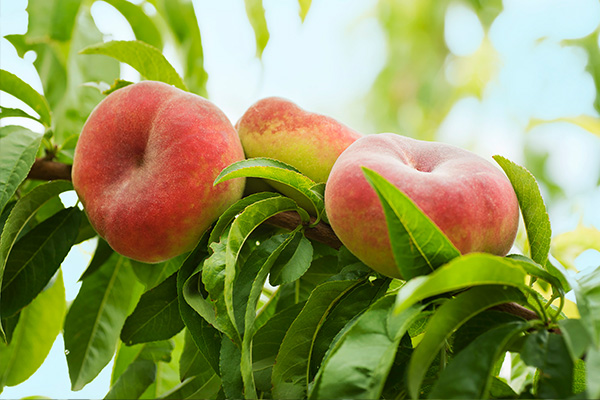
Storage
If you want to store the post-ripening fruits a little longer, you should keep them in the refrigerator. At room temperature, they develop their full flavor after about a day, exude a wonderful fragrance and yield slightly to gentle pressure.
Nutritional information for paraguayos
| Monounsaturated fatty acids | |
| Polyunsaturated fatty acids |
Taste in harmony with people and nature
We use our modern, digitally controlled water management system to save water, always rely on natural predators first when dealing with pests and protect the bees.
More about our social responsibility
